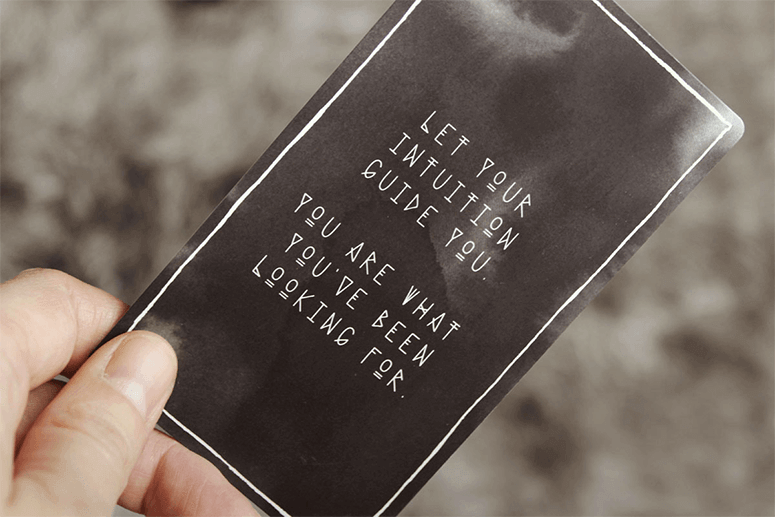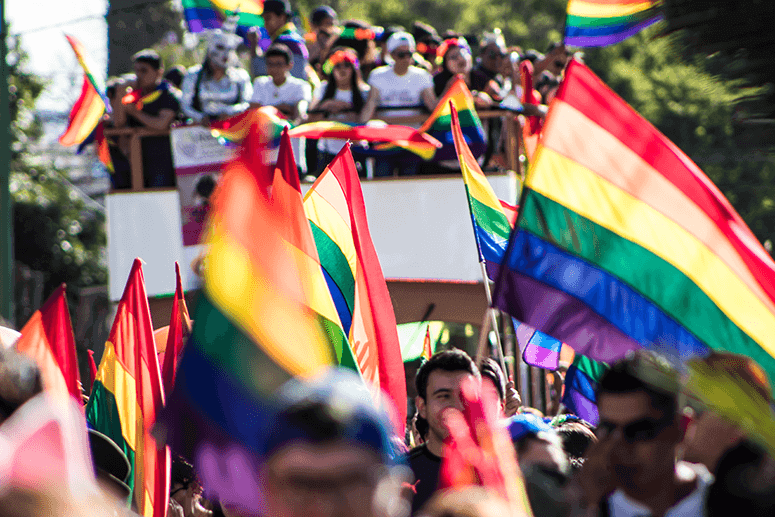The gay urge to be perfect
Unlike gay tropes in movies, I never had that “a-ha” moment of finally discovering my sexuality. There was never a time in my life when I questioned who I am because, in a way, I have always known that I was different. What I had, however, was the rude awakening to the hostility of being queer in a straight man's world.
The first time I was maliciously called "bakla" was in first grade. It must've been my rainbow-colored umbrella or the spring in my walk, but two boys, who were much older and much bigger, followed me along the street while repeatedly calling me homophobic slurs. Having been a scrawny little kid who couldn't even throw a decent punch, all I could do was stop myself from crying and wait for them to leave me alone. Still very young, I wasn't equipped to deal with the profound shame I felt that day.

It didn’t help that when I told my parents about this incident, the only response I got was: “Bakit? Bakla ka ba?” Being raised in a household where a sibling’s head was shaved for being queer, my immediate answer was the most defensive “No!” Instead of revealing my sexual orientation, I deflected and blamed my colorful umbrella. After all, boys my age never used one going to school.
As I would soon find out, deflecting would be my most useful skill. Out of diligent practice, I learned to change a conversation about my sexuality with ease, never facing the discomfort of talking about it. If you’d confront me about the slight swaying of my hips or the melodious way I spoke, I would aggressively ask you if there was a problem with it. It was through this learned avoidance that I was able to build an impenetrable closet around me, each nail made of accomplishments and merits I desperately earned through the years, which I saw as a way to soften the blow if I ever decided to come out.

Being queer in a world run primarily by straight men is deeply wounding. The numerous times I felt shame over something I have no control over conditioned me that there was something about me that was flawed, and in essence undeserving of love. It created this obsessive need to prove to myself and everyone around me that I deserved to be loved, like any other person.
Meticulously creating this perfect facade was a necessity. I had to be the most well-behaved boy with perfect scores and high grades. I worked extremely hard to consistently be a part of the honor rolls and take part in student organizations. I always had this compulsive need to be above average, because anything less might reveal the queerness that I so badly needed to conceal.
Andrew Tobias wrote about this almost innate overcompensation of queer people, specifically gay men. In his book The Best Little Boy in the World, he eloquently depicted how queer men invest in recognizable markers of success to deflect attention away from their sexuality. We overcompensate in competitive arenas like academics, sports, physical looks, employment, and even masculinity because these afford us a sense of self-worth and validation.
This relentless desire to earn validation, however, is such a heavy weight to carry. It has no room for failure or mistakes because every mishap is a confirmation that I am not good enough.
It is ultimately for survival that we queer people learned to design and embellish a self-image that could help us get by in a world so unaccepting of queerness. I personally had to forgo dreams and personal enjoyment because it did not conform to people's expectations of me. Growing up in a lower-income family, indulging my sexual orientation meant exposing myself to the dangers the world readily inflicts on queer people, especially those of lower economic status.

Overcompensating then becomes a form of protection. In my head and in my heart, I believed that if I reached a certain level of success, people might see me as acceptable. My employers might overlook the femininity they sense in me because of my long list of accomplishments. If my physical appearance is perfect to the point that it's intimidating, people on the street might think twice before laughing at me and calling me homophobic slurs. I may finally be deserving of unconditional love from my parents and siblings, even if I am not the person they hoped I was.
This relentless desire to earn validation, however, is such a heavy weight to carry. It has no room for failure or mistakes — which are both inherently part of human experience — because every mishap is a confirmation that I am not good enough. It is exhausting.
Trying to maintain this persona that people deem acceptable is forcing me to disregard an integral part of myself. While I'm working for people's acceptance, I'm also slowly but permanently killing the part of me that will truly make me whole and happy.

Yet no matter how much of myself I sacrifice, there are still a lot of people who look at me with disappointment. “Magaling sana, kaso bakla” has become an all-too-familiar statement hurled in my direction. Then, it dawned on me that no matter what I do, I will never be good enough for other people. It opened my eyes to the fact that I have spent the majority of my life punishing myself for others' lack of compassion and kindness, and I have to stop.
I know that authentic fulfillment is not possible down this road, and that unlearning the things I've internalized through the years will take me a great deal of courage and strength. I am under no illusion that I have liberated myself from this need to be perceived as acceptable. I still have this impulse to reduce myself to fit the prescribed mold of this unyieldingly heteronormative world.
However, I now understand that it is necessary to accept the man that I am. It will be a long and arduous journey, but it is one that will lead to a place where I no longer need to be that perfect little boy. A place where I believe I deserve love and acceptance, just like everyone else.


